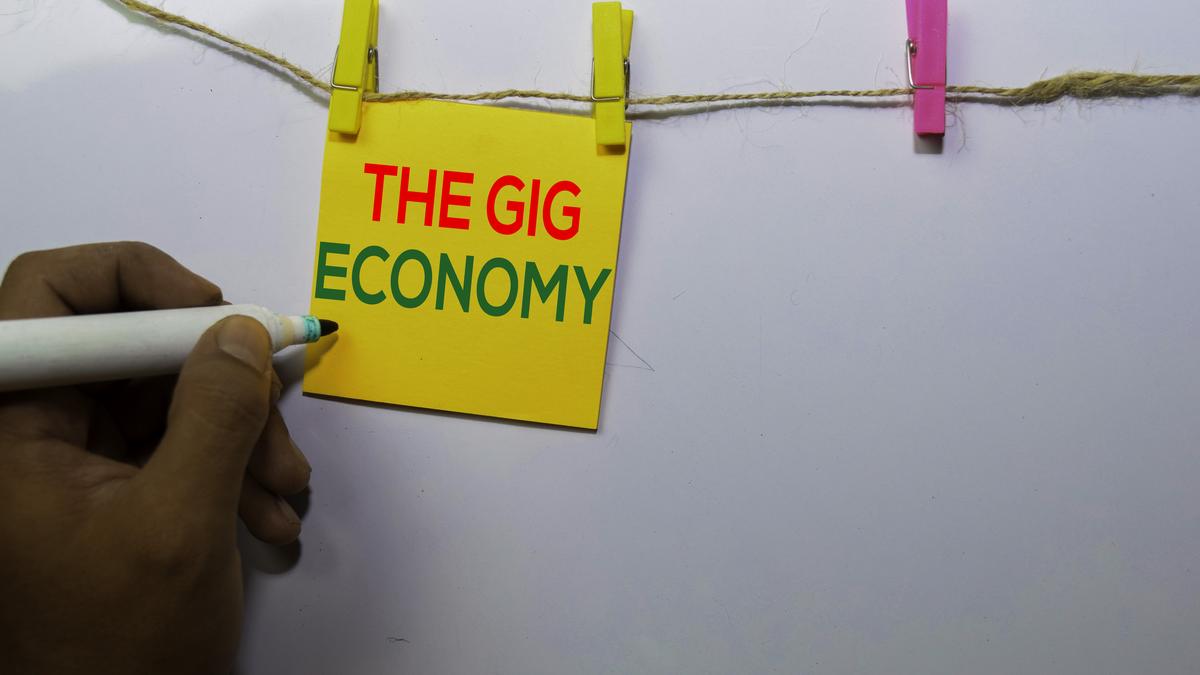He was my friend, not a very close one, but a friend nonetheless. One day, as we were walking together, our conversation turned to the kind of work young people often take up today — bike taxis and delivery jobs. He spoke of companies such as Rapido, Ola, Uber, Swiggy, and Zomato, and remarked that while they employ thousands of youth, such work drains their energy and potential. According to him, even if a delivery person earns as much as an IT employee, society will not respect him, and therefore, his work is worthless.
At first, I partly agreed with him, especially when it came to the question of wasted potential. But as I thought more deeply, another side of the story revealed itself. To me, these jobs are not meaningless — they are life-saving.
I am not suggesting that everyone should take up such work. But in today’s India, where unemployment continues to rise year after year and lakhs of graduates step into the job market, these jobs offer hope. The situation is plain for anyone to see.
Take, for instance, a fictional example. Imagine two students, Abhay and Nandan. Abhay is wealthy and an exceptional student, while Nandan is from a middle-class family, average but skilled. Both graduate in the same year, hoping for bright careers. Instead, they are confronted with cut-throat competition. Freshers like them fight for jobs that pay only ₹15,000 to ₹20,000, competing against those who graduated years earlier. Even if they land a job, the pay is meagre and hardly enough. The harsh reality outside college shocks them into wondering whether to give up or keep struggling.
Abhay, with his financial background, can easily afford further education or skill-building. For Nandan, the picture is different. His parents have already exhausted their savings on his studies. With no money, no job, and no safety net, he feels cornered. His immediate concern is survival — supporting his family while planning for his future. He discovers bike taxi work and joins. The job is flexible, it pays, and it allows him to dream of growth. For someone like Nandan, this is not a waste of potential but a stepping stone. If he endures today with dignity, tomorrow may recognise him as a worthy man.
This story reflects a larger truth. Some people take these jobs as full-time work; others see them as a bridge to a better future. Whatever the case, without them, many of our own daily needs would remain unmet. Yet, people like my friend dismiss their work as “respectless”. Ironically, he himself earns about ₹22,000 — similar to or even less than what many delivery riders make. Some even earn double his salary. He sits in an air-conditioned room, proud of his position, while those he mocks toil in scorching heat, heavy rain, and cold winds. They still manage to treat their customers with courtesy, regardless of who they are. If that is not dignity, then what is?
Of course, not everyone behaves ideally. I too have encountered rude or careless delivery workers. But these are exceptions — personal flaws, not reflections of the profession. More often, I have witnessed humility, hard work, and resilience.
This discussion is not just about delivery riders. They came into focus because of my friend’s remarks, but the point extends to all undervalued jobs. Society tends to look down upon certain forms of work simply because they lack the glamour of titles or air-conditioned offices. Yet, these jobs are no less vital.
My friend insists that such work lacks respect and dignity. I believe the opposite. For those with no other options, survival often means accepting undervalued jobs. It takes courage to do work knowing others will judge it. And for those with potential, such jobs serve as anchors, keeping them afloat until they rise. If they fail to rise, perhaps their potential was not as society imagined. Either way, we cannot truly know what someone is going through unless we walk in their place.
My friend says these jobs do not earn respect in society. I say self-respect is enough. What others think does not define dignity. To me, what delivery riders and others in similar roles do is the true expression of the dignity of labour.
In the end, it is not about job titles or economic status. It is about understanding, and about treating one another with respect.
mohankrishnaandra014@gmail.com
Published – October 12, 2025 03:25 am IST
